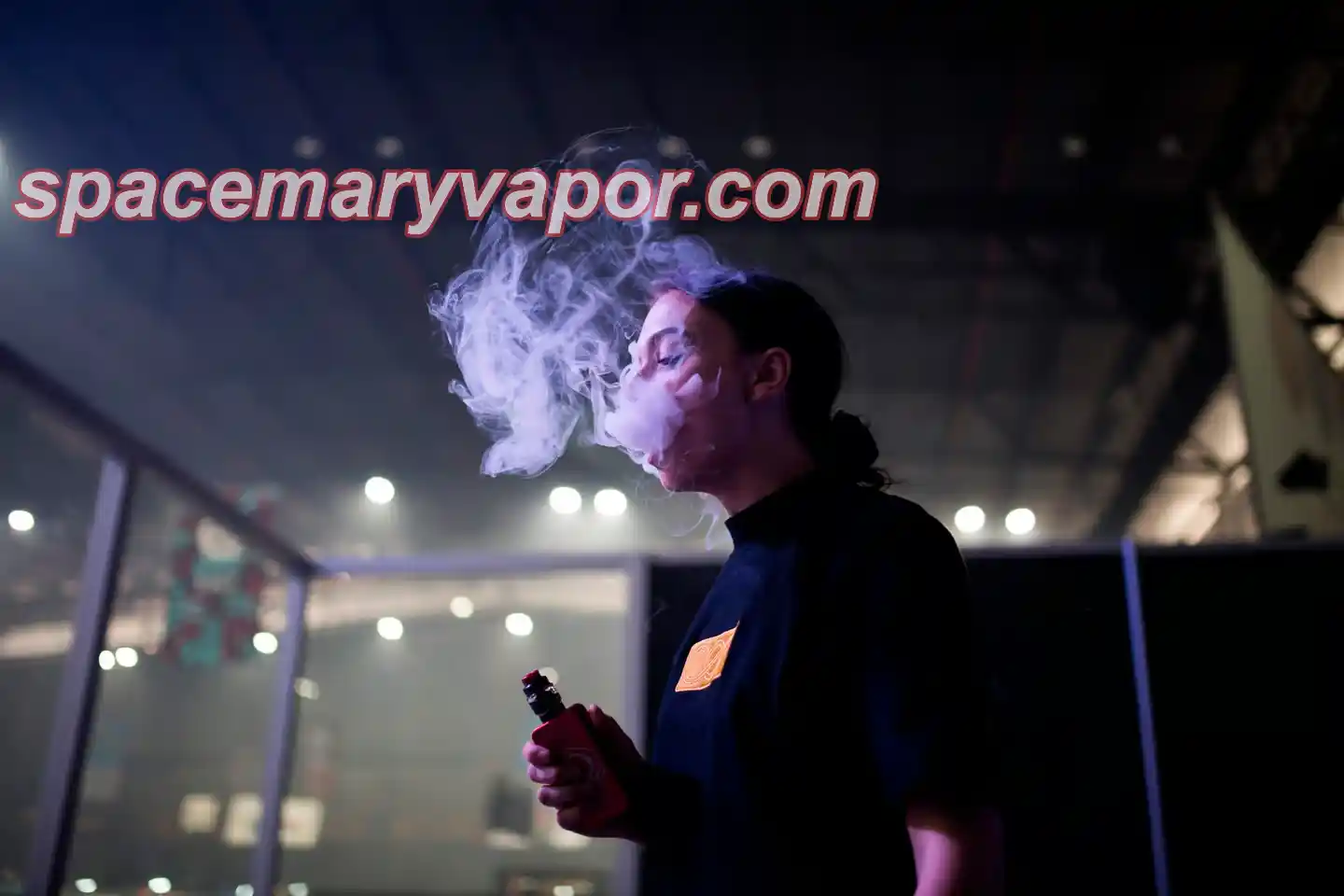How to Successfully Enter and Grow Your Vape Brand in the Nigerian Market
How to Break into the Nigerian Vape Market: Challenges and Opportunities
Nigeria, Africa's largest economy, is home to a population of around 230 million people, making it one of the most populous countries in the world. The most exciting part? Over half of the population is under the age of 30, which positions Nigeria as one of the fastest-growing and most dynamic markets for youth-oriented products. This younger demographic is not only digitally savvy but also increasingly open to new lifestyle trends and alternatives to traditional habits, making the country an ideal market for vaping products.
For international vape brands, Nigeria presents a goldmine of potential. However, breaking into this market isn’t without its challenges. The 7-hour time difference with countries like China, the geographical distance, and a variety of cultural and logistical barriers all play a role in making market penetration more difficult. So, how can space mary sm8000 companies overcome these obstacles and carve out a significant presence in Nigeria? The answer lies in strategic marketing, effective partnerships, and localized branding.
1. The Limitations of Online Marketing and Virtual Reality (VR)
In today’s digital-first world, marketing strategies often revolve around online advertising and virtual experiences. Brands across all industries, including vaping, increasingly rely on the internet to connect with customers. For example, online product displays, social media marketing, and even VR demos are great tools for reaching potential buyers who may be hundreds or even thousands of miles away.
However, when it comes to products like vapes—where physical experience and product quality are crucial—online and virtual experiences simply can’t replace the impact of trying the product in person. Virtual reality and online displays might show the product’s features and functions, but they can’t fully convey what it feels like to hold the vape, test the flavors, or understand the sensation of vaping.
In Nigeria, where consumer trust in new products might still be developing, having a virtual representation of your product may not be enough to convince people to make a purchase. Vaping is a personal experience, and many consumers want to feel the quality firsthand before they commit. Real, tangible interactions with your product are a critical part of converting interest into actual sales.
2. The Power of Fixed Display Spaces for Branding
When it comes to penetrating new markets like Nigeria, one of the most effective ways to build consumer trust is through a fixed, physical display space. This could be anything from a permanent kiosk in a mall to a dedicated retail space or even a pop-up store. A fixed display space not only allows customers to experience the product firsthand but also serves as a powerful tool for building brand credibility. Want to learn more about vapes? space mary flavors is your best choice!
For a market like Nigeria, where vaping is still a relatively new concept, creating a physical presence helps establish authority. Many consumers might be unfamiliar with the specific brands and may have concerns about the quality or safety of vaping products. A well-designed, professional display offers an immediate opportunity to demonstrate the product’s value and answer any questions on the spot.
What’s more, having a physical presence offers more than just product exposure; it creates an opportunity for direct interaction with consumers. Imagine a local vape shop or a mall kiosk where potential customers can test various flavors, ask questions, and even watch how vapes are used. This personal touch, combined with expert staff or promotional demonstrations, can dramatically boost customer confidence and increase conversion rates.
For new brands entering the market, this is especially important. Getting your product into the hands of consumers and allowing them to experience it in person helps foster trust and loyalty. The more opportunities people have to interact with your brand, the more likely they are to feel comfortable purchasing your product.
3. Building Strong Local Partnerships
Although a physical display space is an effective marketing strategy, it’s only one piece of the puzzle. Another critical aspect of entering the Nigerian market successfully is establishing strong partnerships with local distributors and retailers.
Collaborating with local distributors not only helps vape brands navigate Nigeria’s complex retail environment but also ensures that their products are readily available to consumers across the country. Local retailers have deep knowledge of the market and the preferences of Nigerian consumers, which can be a game-changer when tailoring a product offering to suit local tastes.
Working closely with these distributors allows brands to tap into their existing networks and leverage their established presence in the local market. For instance, a local vape retailer might have direct access to popular shopping malls, local markets, and e-commerce platforms. By partnering with these retailers, a vape brand can gain quick access to a broad customer base, accelerating market penetration.
At the same time, it’s also crucial to build strong online distribution channels. In a digitally connected country like Nigeria, e-commerce is growing rapidly, and consumers are increasingly shopping online. Partnering with local e-commerce platforms like Jumia, Konga, or even using social media platforms like Instagram and TikTok to market products can help your vape brand reach a wider audience. Social media platforms, in particular, are very effective for engaging with young Nigerians who are often on their phones and looking for the latest trends.
4. Localized Marketing and Understanding Consumer Preferences
Marketing in Nigeria isn’t just about translating your messaging into the local language; it’s about understanding and embracing the culture and values of Nigerian consumers. This involves adapting your product offerings to better suit the local market and paying attention to regional preferences when it comes to flavors, packaging, and promotional tactics.
For example, young Nigerians are incredibly in tune with global trends, but they also have unique tastes and preferences. Flavors that resonate in other parts of the world may not work as well in Nigeria. By offering flavors that cater to local tastes, such as tropical fruits or indigenous Nigerian flavors, brands can increase their chances of success. A mango-flavors vape or a drink-inspired flavor could be much more appealing to a Nigerian customer than a generic “mint” or “tobacco” flavor.
Additionally, Nigeria is a highly diverse country with varying ethnic groups, languages, and traditions. Brands that succeed in Nigeria are those that tailor their marketing strategies to reflect this diversity. Whether it’s using local dialects or aligning with cultural events like holidays or music festivals, being culturally relevant is key to building a strong relationship with Nigerian consumers.
In addition to localizing product flavors and marketing messages, offering localized customer service is essential. Providing support in local languages, ensuring timely responses to inquiries, and offering after-sales services that align with the customer’s expectations can significantly improve brand loyalty. Customers are more likely to stick with a brand that understands their needs and provides them with the support they require.
5. Understanding the Regulatory Landscape and Market Growth Potential
While the Nigerian vape market holds immense potential, it's important to stay informed about the regulatory environment. At the moment, the Nigerian government is still in the process of establishing comprehensive regulations around the sale and use of vapes, as they are relatively new to the country. Brands must navigate this evolving landscape carefully to avoid any legal hurdles.
Despite the uncertainties in regulation, the market for alternative smoking products like vapes is still growing rapidly in Nigeria. With the younger population increasingly seeking alternatives to traditional cigarettes, the demand for vapes continues to rise. By building strong relationships with regulators, staying compliant with local laws, and being proactive in advocating for the safety and benefits of vaping, companies can position themselves as trusted leaders in the Nigerian market.
Moreover, as the market matures and consumer awareness increases, there will be greater opportunities for brands to expand their product lines, introduce innovative features, and experiment with new flavors that cater specifically to Nigerian tastes.
6. The Future of Vaping in Nigeria
The Nigerian vaping market is still in its early stages, but it’s growing at a fast pace, and the future looks promising. By establishing a physical presence, forging strategic partnerships, developing localized marketing strategies, and staying ahead of regulatory changes, brands can capture the interest of the large, youthful Nigerian population and create a lasting impact.
As the market continues to evolve, it’s important for vape companies to be adaptable and responsive to consumer trends. Offering unique and exciting flavors, providing excellent customer service, and ensuring that local needs are met will be the keys to thriving in this market. The potential is vast, and with the right approach, Nigeria could become a major hub for the global vape industry in the coming years.
In the end, the Nigerian market offers a unique blend of opportunities, challenges, and untapped potential. Whether you're a new brand or a seasoned veteran, understanding the local dynamics and putting the right strategies in place will be crucial for long-term success. Now’s the time to take advantage of this emerging market and set your vape brand on the path to success in Nigeria.
